Assassin’s Creed: Mirage is Ubisoft’s latest instalment in the Assassin’s Creed franchise. I’m a massive fan of the series, and I have probably owned and played most of the games in the series. Generation leaps aside, Assassin’s Creed: Mirage is sort of a step back in the franchise but in a good way. It takes players back in more ways than one.
Playing the role of Basim from Assassin’s Creed: Valhalla, you get to see what happened in his past prior to that game’s events. Mirage is similar to the earlier games, namely using stealth rather than brute force… Basim is not a Viking, after all.
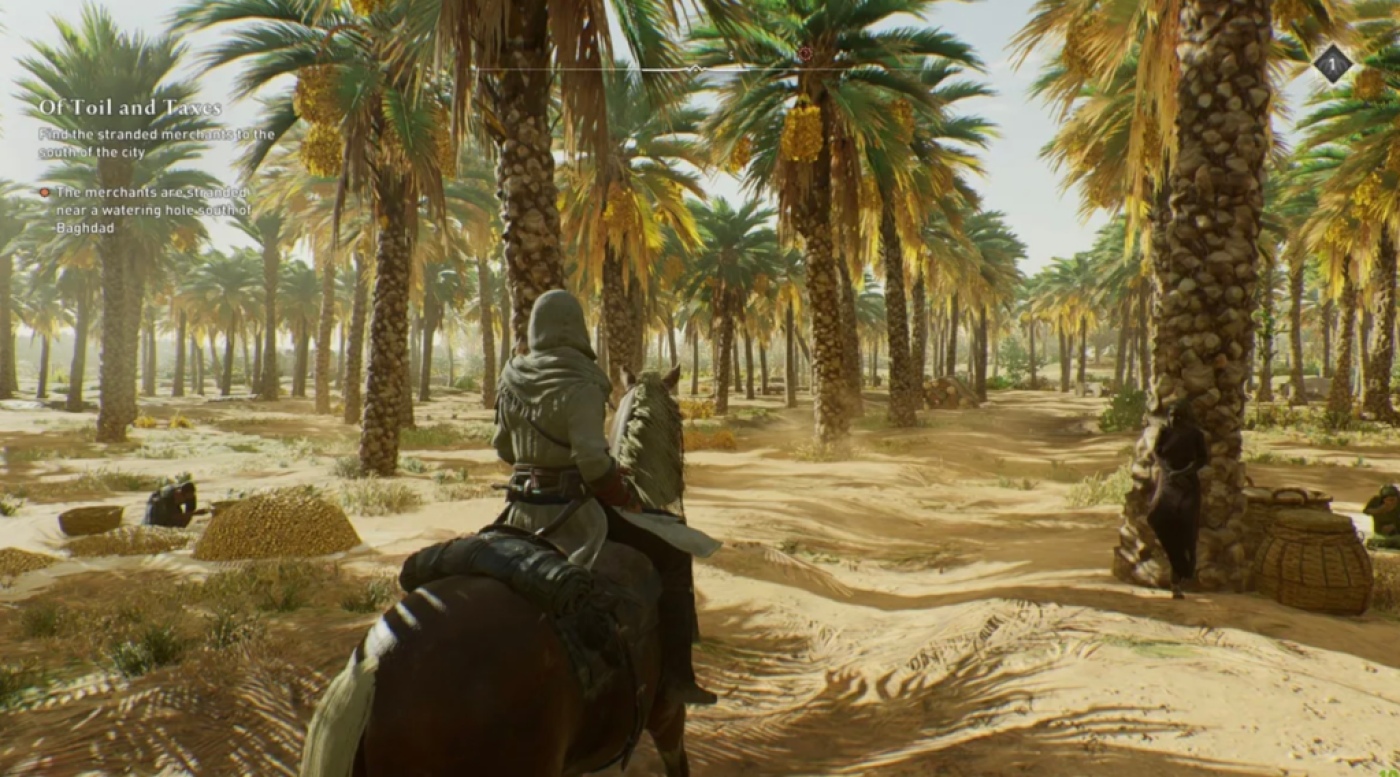
Based in a sandbox version of Baghdad, the game world features a number of districts: Abbasiyah, the cultural hub, Karkh, the market district, Harbiyah, the industrial district and the Round City. Outside the city’s walls, you will find wilderness, which makes a nice change to the bustling streets, but they are just as dangerous. Baghdad feels truly alive, and it’s fun just listening to the many NPCs going about their daily lives and the discussions they have with each other.
Within Assassin’s Creed: Mirage, you will need to gather tokens, which you gain by completing missions and pickpocketing those NPCs I mentioned earlier. These tokens become very useful, and they include Power tokens, which allow you to use mercenaries to fight guards, and Merchant tokens, which can be used to help you bribe merchants, and Scholar tokens, which allow you to blend in with the crowd.
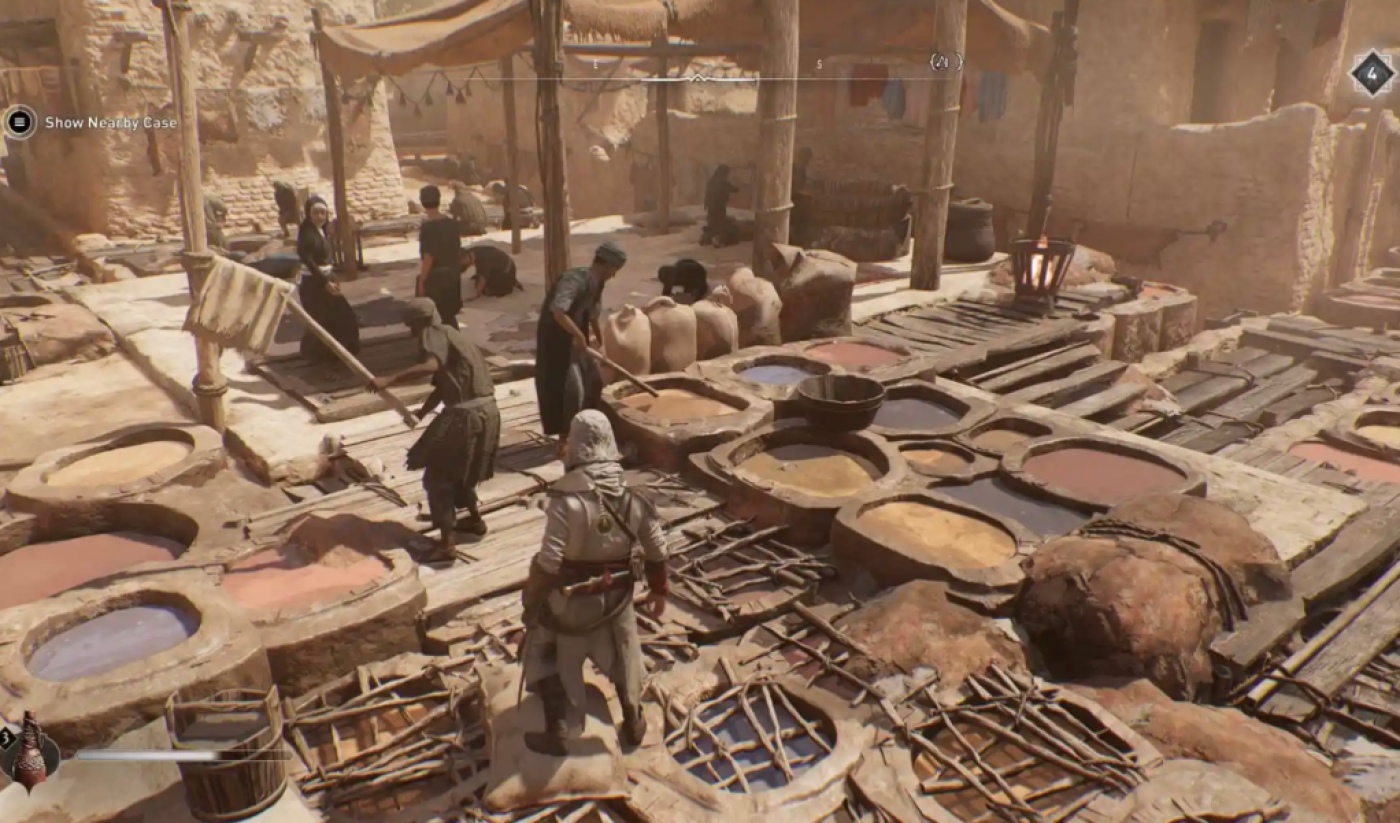
Assassin’s Creed: Mirage is very much a stealth game, especially when compared to the more recent games. The notoriety system is back again; get yourself noticed too much killing guards or pickpocketing, and you will be more likely to get noticed by guards when walking around and minding your own business.
Whilst combat is really good, your will struggle not to lose your health if surrounded by multiple guards. Combat is taxing, and whilst you have a sword and dagger, you really do need to take your time with combat, parrying and waiting for that opening to hit back. Rush in and you won’t last for long.
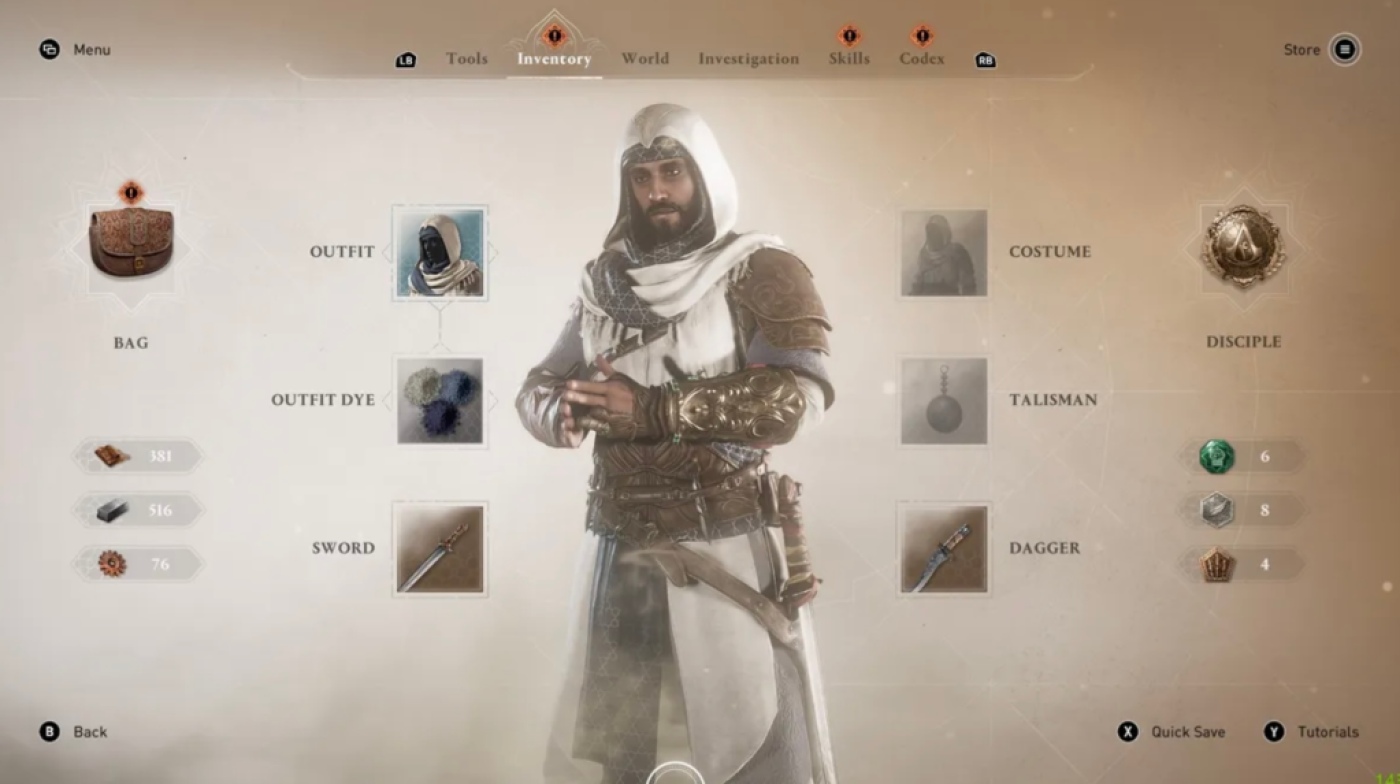
Basim has all of the usual Assassin weaponry at his disposal, such as knives, swords, throwing knives, smoke bombs, etc. Eagle vision is back also, allowing you to spot enemies and plan your infiltrations without causing too much of a fuss.
As with other games, Assassin’s Creed: Mirage allows you to upgrade your character. There are only three tiers you can upgrade that focus on what you can carry, the amount of damage you can deal and adding status affects. There is also a skill tree split into three branches: Phantom, Trickster, and Predator. Phantom allows you to focus on building your skills in direct and stealth combat, Trickster allows you to focus on stealth tools, and Predator allows you to focus on Enkidu for detecting enemies in stealth.
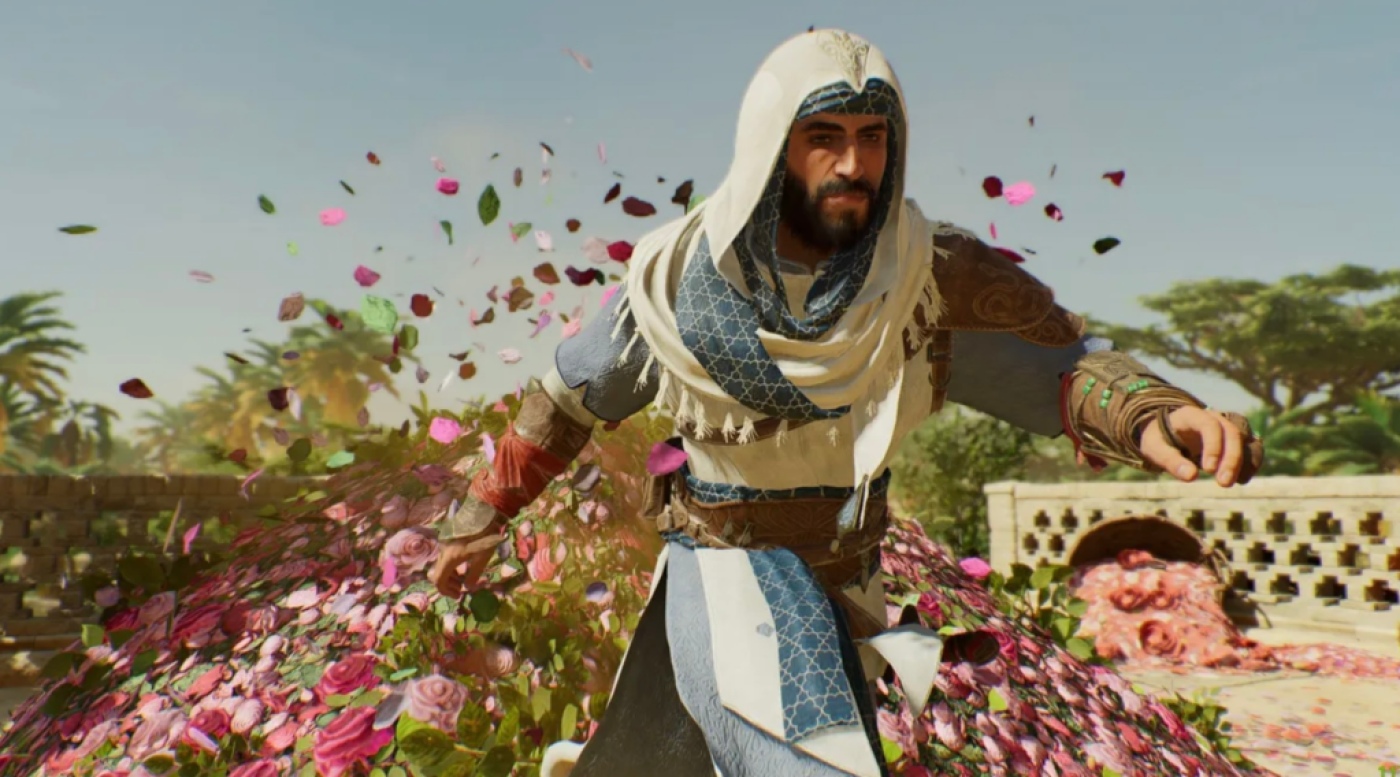
Compared to the likes of Valhalla, Mirage has somewhat slimmed back the number of skills you can upgrade, making it a lot more focused and easier to understand. I always found Valhalla to be a little daunting at times, but Mirage goes back to basics, similarly to the early games.
There are a number of assassination missions where you can choose different ways and routes to accomplish tasks. The sandbox element of completing missions is both refreshing and allows you the freedom to complete tasks how you would prefer.
When it comes to getting around, the usual parkour is still the main gameplay element. Baghdad is the ideal place for climbing up buildings and jumping around from rooftop to rooftop. As with all other Assassin’s Creed games, it’s still not perfect, and at times I found myself jumping in the wrong direction. I do think it’s taken a slight step backwards with regards to movement controls, especially when compared to Valhalla.
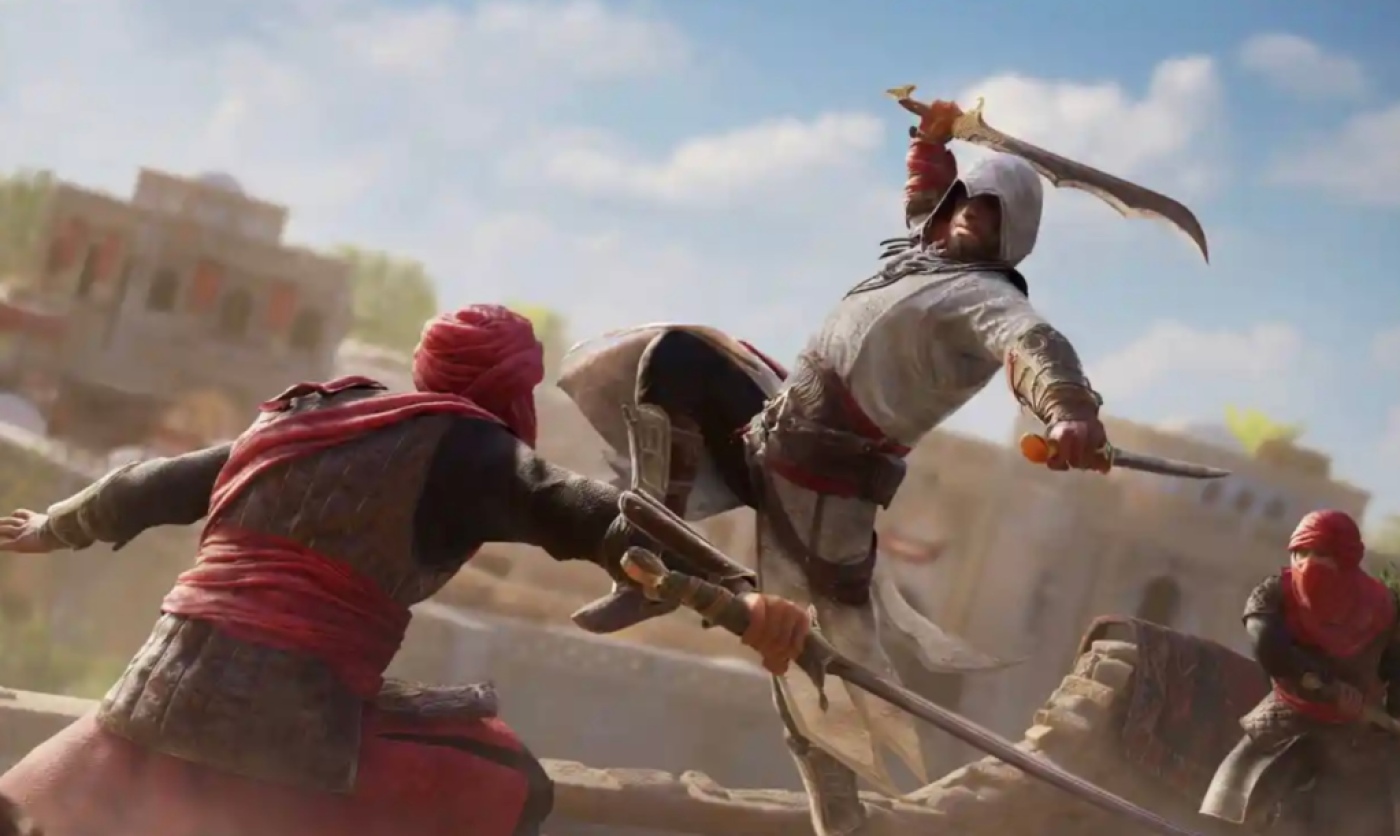
I found that, story-wise, the game was a little on the slow side. Some may be okay with this, but it may also put off many other players. Another issue I found is that you really need to have played previous Assassin’s Creed games in order to understand the lore and mythology. The main game is only around 30 hours long, and that big reveal at the end will really only make sense if you have played previous games.
Graphically, the game is decent, but I’ve seen better. Compared to the likes of Valhalla, I think Mirage has taken another step back, probably so that it fits in with earlier games in the franchise. However, streets are detailed, as are the character models. Movement is smooth, and it really is great to just wander around and take in the sights and sounds of Baghdad, it really does feel alive.
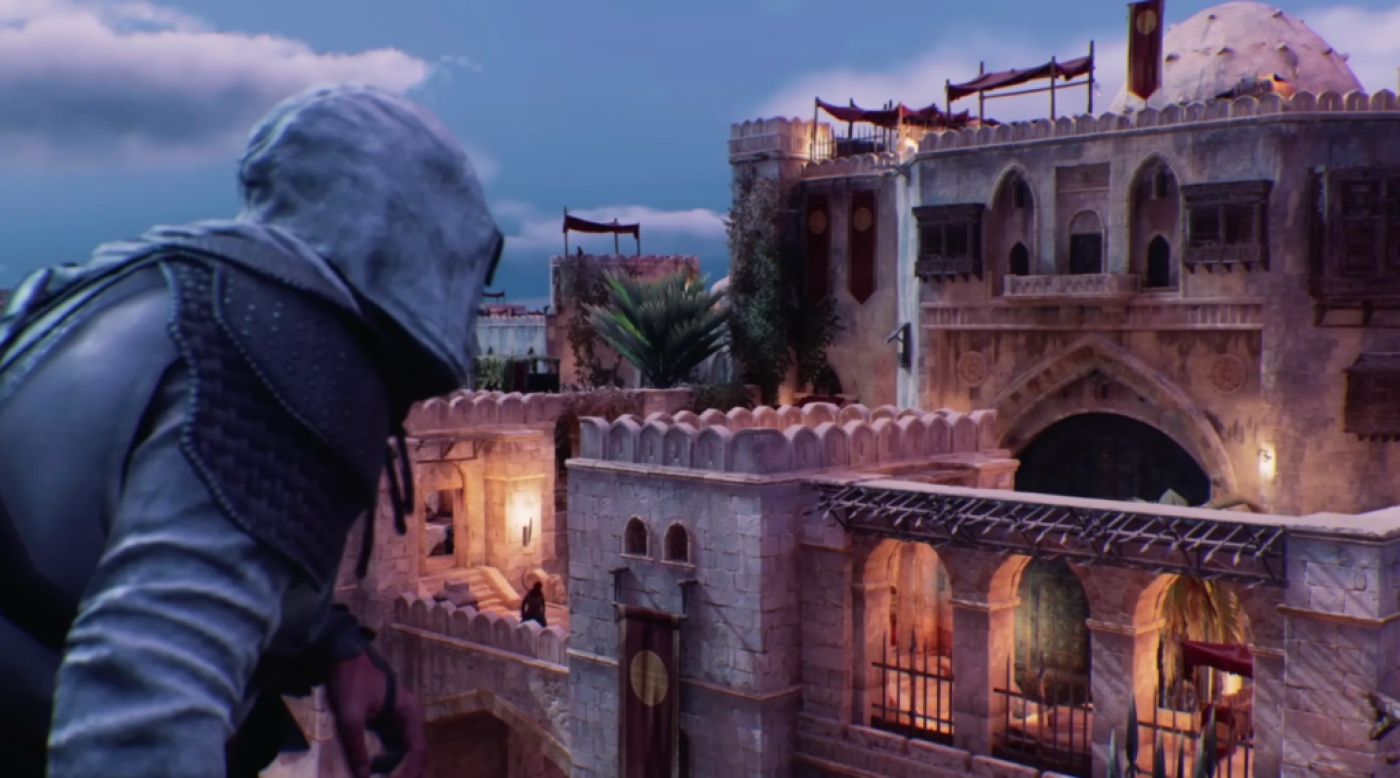
I did experience a few technical issues, such as frame-rate drops and some crashes, as well as the image and character models breaking up, particularly within the city of Baghdad. This is something that will hopefully be resolved in future updates, and it’s probably something that we’ve come to expect with many day-one releases.
Assassin’s Creed: Mirage is a decent game, though compared to previous titles, I do feel that Ubisoft have regressed. Some will love the changes and what Ubisoft have tried to achieve, which is going back to its original roots. But for me, I’d rather take a step forward, especially after the great Valhalla. It’s not a bad game, don’t get me wrong, but it’s not a great game either. It’s more of a stopgap until the next game in the franchise is released. It just doesn’t feel next generation to me.
Developer: Ubisoft
Publisher: Ubisoft
Platforms: PlayStation 5, Xbox Series S/X, PC
Release Date: 5th October 2023



